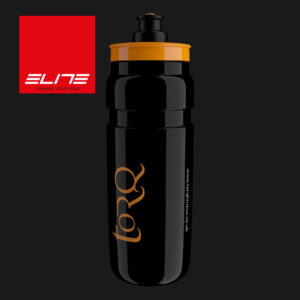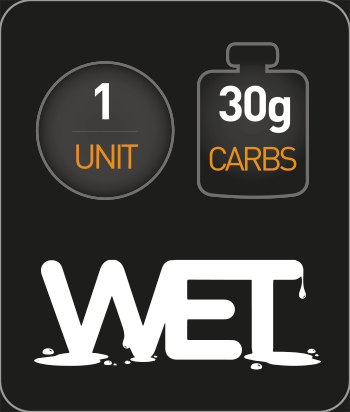Cola Caffeine Energy Drink Powder
Showing all 5 results
-
TORQ Elite Fly 550 Bottle
Add to Basket This product has multiple variants. The options may be chosen on the product page -
TORQ Elite Fly 750 Bottle
Add to Basket This product has multiple variants. The options may be chosen on the product page -
TORQ Elite Kebea Performance 550ml
Add to Basket This product has multiple variants. The options may be chosen on the product pageNEW! -
TORQ Elite Kebea Performance 750ml
Add to Basket This product has multiple variants. The options may be chosen on the product pageNEW! -
500ml Black Bottle
Add to Basket
Product Highlights
- With Guarana (100mg Caffeine/500ml)
- 2:1 Glucose:Fructose
- Multiple Transportable Carbohydrates
- Contains 5 Key Electrolytes
- Isotonic Profile
- Part of the TORQ Fuelling System
Product Summary
This product has been carefully formulated to deliver TORQ’s unique blend of multiple-transportable carbohydrates, fluid and electrolytes to the working muscles extremely quickly and efficiently using research-proven 2:1 Maltodextrin:Fructose technology and all 5 key electrolytes.
TORQ Cola Caffeine Energy Drink also contains 100mg of Natural Caffeine per 500ml via Guarana Extract. Caffeine has been found to increase alertness, mental agility, muscle function and assist the fat-burning process among other benefits.
TORQ Energy Drink forms part of the TORQ Fuelling System, so can be used alongside TORQ’s energy gels, bars and jellies to fuel optimal performances. Please take the time to read about the TORQ Fuelling System by clicking HERE and ensure that you get the most out of this product.
500ml of TORQ Energy Drink will provide 30 grams of multiple-transportable carbohydrates (1 TORQ Unit) and whilst offering an optimal source of fuel, this product will also supply fluid and electrolytes to maintain the body’s hydration requirements and homeostatic balance. For optimal performances, our TORQ Fuelling System recommends consuming 2-3 TORQ Units per hour which can be achieved through consuming a variety of fuelling products as illustrated in the table below. Consuming a TORQ Energy Drink is one method of ingesting a TORQ Unit and has the advantage of delivering hydration too.

The higher your perspiration rates, the more TORQ Energy Drink you will need to consume relative to our more concentrated fuelling units – TORQ Gels, TORQ Bars and TORQ Jellies. All of our fuelling products are optimised with multiple-transportable carbohydrates, the only difference between them is the texture; Smooth, Soft or Chewy. Again, this interaction between TORQ’s fuelling products is explained fully HERE on our Fuelling System page and the illustration below summarises the concept nicely.

If you are not sure whether you should be using TORQ Energy Drink or TORQ Hydration Drink, this article will help you decide: What’s the Difference?
PLEASE NOTE: TORQ Cola Caffeine Energy Drink contains HIGH LEVELS OF CAFFEINE and should be used alongside our regular non-caffeinated energy drinks and other Fuelling System products to achieve optimal performances. The beneficial role that caffeine plays in sports performance is discussed in the ‘Technical Information’ tab and comprehensively in the following article: How Can Caffeine Boost Performance?
Product Usage
TORQ Energy Drink is available in single use sachets, to be added to 500ml of water, 500g pouches (makes 15 X 500ml) or 1.5Kg pouches (makes 45 X 500ml). Sample Packs are also available from this website.
All pouches are supplied with a scoop.
Use 1 level scoop of TORQ Energy powder per 250ml of water (2 scoops for 500ml, 3 scoops for 750ml and 4 scoops for 1 litre). Always add powder to water, not water to powder to ensure easy mixing.
Half fill drinks bottle with water, add level scoops of powder, replace lid and shake vigorously. Top bottle up with water, shake again and now your TORQ Energy is ready to drink.
The TORQ Fuelling System page of this website clearly explains how TORQ Energy Drink works alongside TORQ’s other fuelling products (TORQ Gel, TORQ Bar and TORQ Jellies). TORQ Energy Drink is suitable for use at all exercise intensities and is the foundation of the TORQ Fuelling system, because it’s the only product that will deliver significant amounts of fluid and electrolytes along with carbohydrate fuel. Adequate hydration is of course fundamental from a performance perspective.
Please take the time to watch this short video to learn how the TORQ’s fuelling products work together as part of the TORQ Fuelling System:

HIGH LEVELS OF CAFFEINE: Please bear in mind that each 500ml serve of TORQ Cola Caffeine Energy Drink contains 100mg of caffeine. People have different tolerance levels to caffeine and you will need to work out a caffeine intake strategy based on your individual circumstances. This will involve combining this product with other non-caffeinated Fuelling System products in the TORQ range.
For comprehensive information on caffeine and how best to use this product, read our comprehensive article on the subject: How Can Caffeine Boost Performance?
Technical Information
Guarana: TORQ Cola Caffeine Energy Drink contains 100mg of natural caffeine per 500ml serve delivered via Natural Guarana. Caffeine is a psychological stimulant, so aids mental concentration. The TORQ Fuelling System will allow you to follow an effective fuelling strategy, which will ensure that your muscles and brain will always have the energy they need to deliver the best performances. Caffeine doesn’t provide any extra energy as such, but it does deliver the perception of energy by up-regulating the central nervous system – this is why a coffee can mentally perk you up when you’re feeling a bit sleepy or can’t concentrate. Taking this product occasionally instead of a non-caffeinated fuelling unit can be used as a tool to boost flagging concentration and motivation.
Caffeine is essentially a central nervous system lubricant, so as well as boosting concentration and motivation it can increase muscular power and efficiency as well as mobilising fat as a fuel source, helping to spare glycogen (your carbohydrate reserves). For these reasons, there is a strong argument that caffeine should be consumed routinely during exercise/competition to boost physiological as well as psychological performance.
Finally, many of us consume caffeine containing beverages regularly throughout the average day and missing a cup of team or coffee at a certain point during the day is often noticeable. In reality, if you’re a habitual caffeine consumer, you will have a mild addiction and will actually need it to function normally. There is therefore a strong argument for consuming caffeine whilst exercising simply to maintain homeostasis – why deprive your body of something it needs to feel ‘normal’ just because you’re exercising. This is especially significant on longer training sessions or events where you can’t guarantee access to a cuppa!
Please note that this product contains HIGH LEVELS OF CAFFEINE and should be used alongside our regular non-caffeinated energy gels to achieve optimal performances. For comprehensive information on caffeine and how best to use this product, read our comprehensive article on the subject: How Can Caffeine Boost Performance?
Multiple-Transportable Carbohydrates: TORQ Energy Drink utilises a 2:1 blend of glucose-derivatives and fructose founded on a now substantial body of peer-reviewed published research (see References tab). The carbohydrate sources for TORQ Energy Drink come from an extremely low osmolality maize-derived maltodextrin (a long chain glucose derivative) and fructose. This dual-delivery carbohydrate formulation has been proven beyond doubt to supply energy faster than any other combination of carbohydrates or single carbohydrate source formulations. Take a look at the two very short animations below, which demonstrate how 2:1 Glucose-Derivatives:Fructose deliver over 40% more carbohydrate to the blood per hour than single glucose sources (the next best option).


For a comprehensive background to the research into multiple-transportable carbohydrates, visit the TORQ Fuelling System page on this website and look at the tab entitled Why 2:1? Here we thoroughly explain the research and why we have incorporated it into this product and others in the fuelling range.
Isotonicity: The high grade, low osmolality maltodextrin used by TORQ maintains TORQ Energy Drink’s tonicity just below the isotonic level, providing the perfect balance between fuel and fluid delivery into the blood. TORQ Energy Drink has literally been optimised in every way possible. A Hypertonic solution priorities fuel delivery over fluid and a Hypotonic solution works the other way around, favouring fluid over fuel. The beauty of a solution being Isotonic is that it sits right in the middle of these two states, providing the perfect platform for endurance fuelling. If perspiration rates are low, TORQ Energy should be consumed alongside TORQ’s more concentrated fuelling units (TORQ Gel, TORQ Bar and TORQ Jellies) forming a Hypertonic regimen in the intestine, delivering fuel faster when fluid isn’t so important. When perspiration rates are higher, more TORQ Energy Drink should be consumed relative to the concentrated fuelling units, maintaining the isotonic balance.
TORQ do produce a hypotonic product, which not surprisingly is called TORQ Hydration Drink, designed for situations where perspiration rates are exceptionally high and fuel delivery is less important. For further information on this product, click HERE. To learn more about the differences between TORQ Energy Drink and TORQ Hydration Drink, read this article. If you would like to learn more about the differences between Isotonic, Hypotonic and Hypertonic products, please take the time to read this article.
TORQ Energy Tonicity Data (Osmol/Kg): Natural Orange Flavour: 0.218 // Natural Lemon Flavour: 0.222 // Natural Lime & Lemon Flavour: 0.218 // Natural Pink Grapefruit Flavour: 0.211 // Natural Blackcurrant Flavour: 0.223 // Natural Vanilla Pod Flavour: 0.211 // Tonicity of Blood: 0.29
Facilitated Transport: The carbohydrate in TORQ Energy Drink doesn’t only deliver fuel, but also helps with the hydration process, one of the key benefits of isotonic drinks. Carbohydrates, such as glucose, are absorbed into the body via a specific transporter called sodium-glucose cotransporter 1, or SGLUT1 for short. These transporters act as a conveyor belt for glucose and sodium, moving them across the small intestine without the need for an osmotic gradient. As carbohydrate and sodium is moved through the SGLUT1 transporter, it also drags with it large volumes of fluid, significantly assisting in hydration. For every single glucose molecule (and 2 sodium molecules) that is moved by SGLUT1, 260 water molecules are moved with it (Loo, Zeuthen, Chandy, & Wright, 1996). The animation below demonstrates the facilitated transport process working in conjunction with passive transport (osmosis):

Electrolytes: TORQ Energy Drink contains Sodium, Chloride, Magnesium, Potassium and Calcium to replace the 5 electrolytes lost through perspiration. These salts maintain homeostasis within the body, allow it to hold onto water and preserve muscle function. Some brands do not include all of these electrolytes in their formulations, or run them at lower levels than they should – some include none at all.
Gluten Free & Vegan Formulation: TORQ Energy Drink is a gluten-free fuelling and hydration product. The formulation for TORQ Energy Drink is also entirely plant-based, so is suitable for Vegans.
Natural Flavours and No Colours: Under exercise stress, digestion is affected as blood is diverted to the working muscles and any solutes added to a product will raise its osmolality unnecessarily making it harder to digest, so irrespective of the health debate surrounding the consumption of artificial ingredients, during exercise is certainly not the time to take them. Therefore, we only use natural flavours that the body can recognise and break down easily and we don’t use colours (artificial or natural), because they simply don’t need to be in the product.
No Artificial Sweeteners: For the same reasons as highlighted above, we don’t believe in the use of artificial sweeteners like Aspatame, Acsulfame-K, Saccharine and Sucralose. These artificial sweeteners are 100’s of times sweeter than sugar and Aspartame/Acsulfame-K are particularly controversial with regard to long-term health. They offer no performance benefit at all and our stance is the same with these as with colours and preservatives – if they don’t need to be included in our formulations for functional reasons, why include them?
If you would like to understand the significant benefits TORQ Energy Drink has over electrolyte tablets, please take the time to read this article. The benefits from a performance and financial perspective are quite staggering.
Immune Support
The research is clear, fuelling with carbohydrate and ensuring that you consume a Recovery Drink immediately after exercise will not only boost performance and assist in the overall recovery process, but it will also support your immune system, leaving you less vulnerable to infection.
According to research by Gleeson and Bishop (2000) carbohydrate becomes an important fuel for the immune system cells which can increase tenfold during and post exercise when compared with resting conditions. These immune system cells are boosted by the body to help immunity at this vulnerable time and Carbohydrate supports their effectiveness. Also, according to Cupps and Fauci (1982) cortisol, a stress hormone that is linked to immunosuppression, is inhibited by the presence of Carbohydrate.
Ed Burke (2002) dedicates 2 pages of his book ‘Serious Cycling’ to the role that fuelling with carbohydrate during exercise plays in strengthening the immune system. Talking of researcher Dr Nieman, he says:
“Our research shows that sports drinks not only provide carbohydrate energy during exercise, but support the link between sports drinks and less stress on the immune system. Carbohydrate drinks of about 6 to 10% carbohydrate (TORQ Energy Drink is within this range) will not eliminate the stress of cycling, but our research and work of others show they can reduce the increase of several by-products of stress and hard exercise.”
In cooler conditions, when drinking an energy drink is less desirable, as our Fuelling System suggests, carbohydrate can be delivered in more appropriate concentrated forms like our Energy Gels, Energy Bars and Energy Jellies.
All of this points to ensuring that you maintain good fuelling practices and that you feed immediately with Carbohydrate immediately after exercise. TORQ Recovery Drink provides this carbohydrate, along with a potent dose of Glutamine, which has also been found to assist and support the immune system following exercise.
If you are interested in learning more, we have created the definitive guide to help you understand what your immune system is, how it works, how to strengthen it and how to fight infection effectively should your immune defences be breached. Click HERE for further information. Also, as a direct result of producing these resources, we have since developed 2 specific Immune System Support products:
Our TORQ dFND product has been developed from a need to offer our customers a simple one-a-day tablet solution to deliver high-potency Vitamin D and Zinc to support the healthy daily functioning of the immune system. For further details or to purchase TORQ dFND, click HERE.
Our TORQ aTAC product provides research-recommended doses of Vitamin C, Glutamine and Echinacea through a mega-dosing protocol inspired by the studies we have referred to within these resources. TORQ aTAC is to be taken at the first signs of cold or flu to reduce the symptoms and severity of illness. For further details or to purchase TORQ aTAC, click HERE.
Nutritional Info
Cola Caffeine Flavour
Ingredients: Sucrose (Glucose Polymers 60%), Glucose (30%), Acid: Citric Acid, Electrolytes (3%) (Sodium Chloride, Calcium Lactate, Potassium Chloride, Magnesium Carbonate), Natural Flavouring (2%), Guarana Extract (1%).
| per 100g dry | per 500ml 6% | per 750ml 6% | per 1000ml 6% | |
|---|---|---|---|---|
| Energy (kJ) | 1546 | 510 | 765 | 1020 |
| Energy (kcal) | 346 | 120 | 180 | 240 |
| Fat (g) | 0 | 0 | 0 | 0 |
| of which saturates (g) | 0 | 0 | 0 | 0 |
| Carbohydrate (g) | 90 | 30 | 45 | 60 |
| of which sugars (g) | 65 | 22 | 32 | 43 |
| Fibre (g) | 0 | 0 | 0 | 0 |
| Protein (g) | 0 | 0 | 0 | 0 |
| Salt (g) | 2.1 | 0.69 | 1.0 | 1.4 |
| Chloride (mg) | 1480 | 488 | 733 | 977 |
| Sodium (mg) | 846 | 279 | 419 | 558 |
| Potassium (mg) | 194 | 64 | 96 | 128 |
| Calcium (mg) | 81 | 27 | 40 | 53 |
| Magnesium (mg) | 17 | 6 | 8 | 11 |
| Caffeine (mg) | 303 | 100 | 150 | 200 |
HIGH CAFFEINE CONTENT: Not recommended for children, pregnant or breast-feeding women and people sensitive to caffeine.
Allergy Information: There are no nuts in this recipe and the product is packed in a nut-free environment, however we cannot guarantee that nuts are not handled by staff or visitors on the factory premises. No gluten containing ingredients are used in this product.
No Preservatives // No Colours // No Artificial Sweeteners // Natural Flavouring // Wheat-Free // Dairy-Free // Suitable for Vegans
Banned Substances Testing: TORQ have a protocol in place for TORQ Energy Drink to test for prohibited substances under ISO17025. For further comprehensive information on our testing program, click HERE.
pH Data: Orange pH 3.11 // Lime & Lemon pH 3.06 // Pink Grapefruit pH 2.96 // Blackcurrant pH 3.22 // Lemon pH 3.02 // Vanilla pH 8.02 // Cola Caffeine pH 2.62
Please Note: The nutritionals stated per 500ml to 1000ml are mixed at the recommended 6% isotonic solution. The 100g figure represents the nutritional content of the dry powder before mixing.
If you have any questions about this product or any other on this website, please don’t hesitate in contacting us at enquiries@torqfitness.co.uk or on 0344 332 0852.
References
- Stellingwerff, T & Cox, GR. (2014)
Systematic review: Carbohydrate supplementation on exercise performance or capacity of varying durations. Appl Physiol Nutr Metab. 2014 Sep;39(9):998-1011. - Wilson. PB., Ingraham, SJ. (2015)
Glucose-fructose likely improves gastrointestinal comfort and endurance running performance relative to glucose-only. Scand J Med Sci Sports. [Epub ahead of print]. - Currell, K & Jeukendrup, A.E. (2008)
Superior endurance performance with ingestion of multiple transportable carbohydrates. Med Sci Sports Exerc. 40(2):275–81. - Triplett, D., Doyle, D., Rupp, J., Benardot, D. (2010)
An isocaloric glucose-fructose beverage’s effect on simulated 100-km cycling performance compared with a glucose-only beverage. Int J Sport Nutr Exerc Metab. 20(2):122–31 - Tarpey, M.D., Roberts, J.D., Kass, L.S., Tarpey, R.J., Roberts, M.G. (2013)
The ingestion of protein with a maltodextrin and fructose beverage on substrate utilisation and exercise performance. Appl Physiol Nutr Metab. 38(12):1245–53. - Rowlands, D.S., Swift, M., Ros, M., Green, J.G. (2012)
Composite versus single transportable carbohydrate solution enhances race and laboratory cycling performance. Appl Physiol Nutr Metab. 37(3):425–36. - Baur, D.A., Schroer, A.B., Luden, N.D., Womack, C.J., Smyth, S.A., Saunders, M.J. (2014)
Glucose-fructose enhances performance versus isocaloric, but not moderate, glucose. Med Sci Sports Exerc. 46(9):1778–86. - Rowlands, D.S., Thorburn, M.S., Thorp, R.M., Broadbent, S.M., Shi, X. (2008)
Effect of graded fructose co-ingestion with maltodextrin on exogenous 14C-fructose and 13C-glucose oxidation efficiency and high-intensity cycling performance. J Appl Physiol. 104:1709–19. - O’Brien, W.J & Rowlands, D.S. (2011)
Fructose-maltodextrin ratio in a carbohydrate-electrolyte solution differentially affects exogenous carbohydrate oxidation rate, gut comfort, and performance. Am J Physiol Gastrointest Liver Physiol. 300(1):G181–9. - O’Brien, W.J., Stannard, S.R., Clarke, J.A., Rowlands, D.S. (2013)
Fructose–maltodextrin ratio governs exogenous and other CHO oxidation and performance. Med Sci Sports Exerc. 45(9):1814–24. - Rowlands, D.S., Swift, M., Ros, M., Green, J.G. (2012)
Composite versus single transportable carbohydrate solution enhances race and laboratory cycling performance. Applied Physiology, Nutrition, and Metabolism. 37(3): 425-436. - Smith, J.W., Pascoe, D.D., Passe, D., Ruby, B.C., Stewart, L.K., Baker, L.B., et al. (2013)
Curvilinear dose-response relationship of carbohydrate (0–120 g·h−1) and performance. Med Sci Sports Exerc. 45(2):336–41. - Roberts, J.D., Tarpey, M.D., Kass, L.S., Tarpey, R.J., Roberts, M.G. (2014)
Assessing a commercially available sports drink on exogenous carbohydrate oxidation, fluid delivery and sustained exercise performance. J Int Soc Sports Nutr. 11(1):1–14. - Jentjens, R.L., Underwood, K., Achten, J., Currell, K., Mann, C.H., Jeukendrup, A.E. (2006)
Exogenous carbohydrate oxidation rates are elevated after combined ingestion of glucose and fructose during exercise in the heat. J Appl Physiol. 100(3):807–16. - Jeukendrup, A.E & Moseley, L. (2010)
Multiple transportable carbohydrates enhance gastric emptying and fluid delivery. Scand J Med Sci Sports. 20(1):112–21. - Davis, J.M., Burgess, W.A., Slentz, C.A., Bartoli, W.P. (1990)
Fluid availability of sports drinks differing in carbohydrate type and concentration. Am J Clin Nutr. 51(6):1054–7. - Jentjens, R.L., Venables, M.C., Jeukendrup, A.E. (2004)
Oxidation of exogenous glucose, sucrose, and maltose during prolonged cycling exercise. J Appl Physiol. 96(4):1285–91. - Jentjens, R.L., Achten, J., Jeukendrup, A.E. (2004)
High oxidation rates from combined carbohydrates ingested during exercise. Med Sci Sports Exerc. 36(9):1551–8. - Wallis, G.A., Rowlands, D.S., Shaw, C., Jentjens, R.L., Jeukendrup, A.E. (2005)
Oxidation of combined ingestion of maltodextrins and fructose during exercise. Med Sci Sports Exerc. 37(3):426–32. - Jentjens, R.L., Moseley, L., Waring, R.H., Harding, L.K., Jeukendrup, A.E. (2004)
Oxidation of combined ingestion of glucose and fructose during exercise. J Appl Physiol. 96(4):1277–84. - Jentjens, R.L & Jeukendrup, A.E. (2005)
High rates of exogenous carbohydrate oxidation from a mixture of glucose and fructose ingested during prolonged cycling exercise. Brit J Nutr. 93:485–92. - Fuchs, C.J., Gonzalez, J.T., Beelen, M., Cermak, N.M., Smith, F.E., Thelwall, P.E., Taylor, R., Trenell, M.I., Stevenson, E.J., van Loon, L.J. (2016)
Sucrose ingestion after exhaustive exercise accelerates liver, but not muscle glycogen repletion compared with glucose ingestion in trained athletes. J Appl Physi. [Epub ahead of print].
For reviews see:
Jeukendrup, A.E., 2010. Carbohydrate and exercise performance: the role of multiple transportable carbohydrates. Curr Opin Clin Nutr Metab Care. Jul;13(4):452-7.
Rowlands, D.S., Houltham, S., Musa-Veloso, K., Brown, F., Paulionis, L., Bailey, D., 2015. Fructose-Glucose Composite Carbohydrates and Endurance Performance: Critical Review and Future Perspectives. Sports Med. Nov;45(11):1561-76.
Research linking immunity to carbohydrate ingestion during and post exercise:
Gleeson, M. and Bishop, N.C., 2000. Modification of immune responses to exercise by carbohydrate, glutamine and anti‐oxidant supplements. Immunology and Cell Biology, 78(5), pp.554-561.
Cupps, T.R. and Fauci, A.S., 1982. Corticosteroid‐mediated immunoregulation in man. Immunological reviews, 65(1), pp.133-155.
Burke, E.R., 2002. Serious Cycling. Human Kinetics. pp.154-155.













